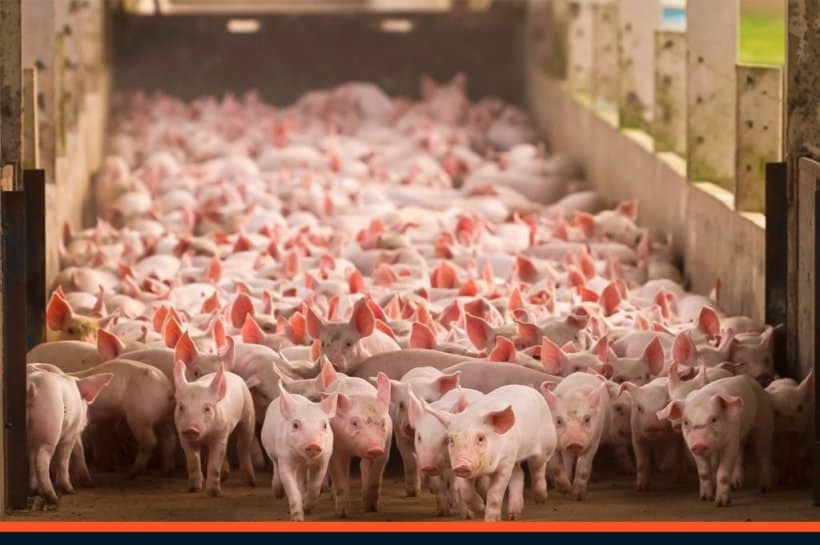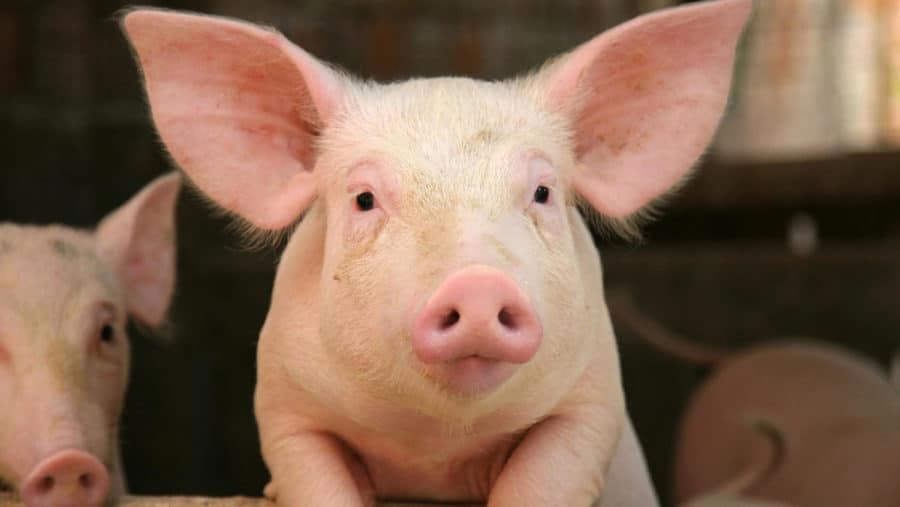Muslims are prohibited from consuming pork and pork products because of the teachings of Islam. According to Islamic tradition, pork is considered to be impure and unhealthy to eat.
One of the main reasons why Muslims are prohibited from consuming pork is that the Qur’an specifically states that pork is forbidden. In the Qur’an, it is stated that “He has only forbidden to you dead animals, blood, the flesh of swine, and that which has been dedicated to other than Allah” (Qur’an 2:173).
The prohibition of pork is seen as a way to safeguard the physical and spiritual health of Muslims. Pork is known to contain high levels of fat and cholesterol, which can lead to health problems such as heart disease and obesity. By avoiding pork, Muslims are able to maintain a healthy diet and protect their physical well-being.
In addition to the physical health benefits of avoiding pork, the prohibition is also seen as a way to protect the spiritual purity of Muslims. The Qur’an emphasizes the importance of maintaining a clean and pure lifestyle, and the prohibition of pork is seen as a way to achieve this.
It is important to note that the prohibition of pork is not based on any cultural or personal preference, but rather is based on the teachings of Islam. Muslims believe that the prohibition of pork is a commandment from God and is therefore not open to interpretation or personal discretion.
Overall, Muslims are prohibited from consuming pork because of the teachings of Islam. This prohibition is seen as a way to safeguard the physical and spiritual health of Muslims and to promote a clean and pure lifestyle.
To discuss Why can’t Muslims eat pork? We should start by reviewing what the Holy Quran (the Muslim holy book) has to say regarding consuming pork. In no less than four separate passages, the Qur’an expressly forbids the ingestion of pig meat. As mentioned in Suratul Baqara verse 173, Suratul Al Maida verse 3, Suratul Al Anman verse 145, and Suratul An Nahl verse 115, pork is banned.
Why can’t Muslims eat pork?
Consequently, there is a spiritual significance and a scientific foundation for the prohibition of pork in Islam, unless in severe instances such as when there is no more food available for human existence, in which case pork may be permitted under certain conditions. Given the number of times pork has been described as being haram, no amount of interpretation will ever be able to modify the content of the Holy Quran, according to scholars.
How does the scientific community believe that pork?
The scientific community believes that pork includes microorganisms such as Helminthes, which include roundworm, pinworm, and hookworm, among other things. Another one of these worms, Taenia Solium, is one of the most harmful, and it is referred to as a tapeworm in layman’s terms. It is a parasite that lives in the gut and is quite lengthy. Its ova, or eggs, penetrate the bloodstream and have the ability to reach practically all of the body’s organs and tissues. If it gets into the brain, it has the potential to induce memory loss. If it gets into the heart, it may induce cardiac failure, and if it gets into the eye, it can cause blindness. If it makes its way into the liver, it has the potential to induce liver damage. It has the potential to harm almost all of the body’s organs.
However, in a study conducted in the United States, it was shown that twenty-two out of twenty-four patients who had Taenia trichuriasis had cooked their pork quite properly. Under typical cooking conditions, the ova contained in the pork do not perish, indicating that they are still viable.
Pork has relatively little muscle-building substance and is high in fat, making it a poor source of protein. This fat is accumulated in the blood arteries, which may lead to hypertension and heart attack in certain people.

Why can’t Muslims eat pork: it is harmful
Trichina worms have been found in around 15% of people’s muscles in Canada and the United States of America as a result of consuming pork. Not considered an illness, it heals slowly, some die, and others become paralyzed from the left side. Everybody eats a lot of pork. There is no treatment or immunity to such a condition. Any antibiotics, medications, or immunizations might have an impact on it. The only chance is to prevent it from infecting others… Its symptoms are identical to those of over fifty disorders. Trichinas cannot be killed by salting or fumigating meat, and slaughterhouse procedures are insufficient to detect trichina-infested meat.” The text may be out of date, but the remedy may be simpler today. “Trichina” sickness, on the other hand, continues to have devastating consequences. Porks, on the other hand, consume everything, even their own excrement, which spreads a terrible odor and has a poor grade in terms of chemical elements.
Cultural perceptions of pork
In terms of cultural perceptions, the pig is the filthiest animal on the face of the planet. It survives and flourishes on mud, excrement, and other organic matter. It is the most effective scavenger that God has ever created. In areas where there are no bathrooms, people defecate in the open air to avoid being seen. Pigs are often used to clean up excreta.
The symbol of corruption is also associated with pork, as shown by the existence of the pork barrel swindle. According to Islamic law, both the ingestion of pork (meat) and the commission of corruption are prohibited.
The pig is a scavenger and hunts for scraps. A carnivore, it consumes a variety of foods. It will consume garbage and even their own deceased kid if given the chance. A pig does not sweat or perspire in any way at all. Excessive sweating is a method of eliminating toxins from the body. In addition, since pigs do not sweat, the poisons linger in their bodies and in their flesh.
When it comes to animal meat, pork is the preferred birthplace for pathogenic microorganisms. Pork is also a carrier of infections that are passed on to customers. It is for this reason that illnesses such as parasites, tapeworms, and flukes are spread around the world.

Cows vs pork
Cows, on the other hand, have a complicated digestive system, with four stomachs, which makes them more difficult to digest. As a result, it takes more than 24 hours for their vegetarian diet to digest, resulting in their food being cleaned of toxins. On the other hand, it takes just around 4 hours for the swine’s single stomach to digest its nasty diet, converting the poisonous food into flesh.
Beef or venison takes around 8 to 9 hours for the body to digest, which means that any toxins present in the meat are slowly released into our system and may be filtered out by the liver after 8 to 9 hours. When pork is consumed, on the other hand, it takes just 4 hours to digest the meat. As a result, we get a far greater amount of exposure to toxins in a shorter period of time.
It was revealed fourteen centuries ago and it warns against the harm that has been incontrovertibly revealed with modern medical equipment and biological tests. This is one of the miracles demonstrating that the Qur’an is the revelation of Allah, the Omniscient. It has not changed, despite all of the preventative precautions and inspections that are carried out in modern-day pig farming, that pork is physiologically incompatible with the human body and is a form of meat that is damaging to human health.
Home animals are permissible for Muslims to consume, while others are haram
Home animals are permissible for Muslims to consume, while others are prohibited. When we examine the diversity of valid and prohibited animals in religion, we find that animals that are damaging to human health are prohibited while beneficial creatures are allowed to consume freely. Pork is prohibited due to its consumption, appearance, digestive system, and transmission of illnesses such as trichina.
God instructs us to consume clean and healthy foods and to pray for them. If you consume halal foods, God will accept your prayers and worships. Haram reasons for your requests being denied. God gives the order;



